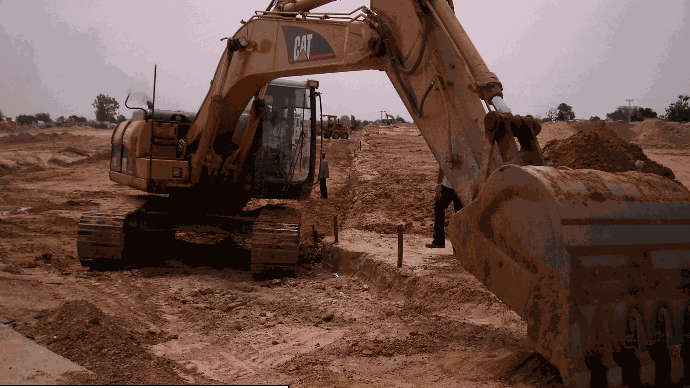
Introduction:
Construction projects, whether large-scale infrastructure developments or small residential builds, rely on a range of heavy machinery to carry out various tasks efficiently. Among these machines, excavators hold a prominent position due to their versatility and ability to tackle a wide array of construction tasks. In this blog post, we will explore the indispensable role of excavators in construction work and highlight the reasons why these machines are a vital asset on any construction site.
Efficient Earthmoving and Excavation: Excavators are primarily designed for earthmoving and excavation tasks. With their powerful hydraulic systems and large buckets, they can quickly and effectively move substantial amounts of soil, gravel, rocks, and other materials. From digging trenches for utility lines to creating foundations for buildings, excavators streamline the process, reducing manual labor and significantly improving productivity.
Precise Digging and Grading: Construction projects often require precise digging and grading to ensure proper leveling and accurate dimensions. Excavators, equipped with advanced hydraulic controls and attachments like grading buckets, allow for precise digging and grading operations. They can create level surfaces, slopes, or precisely shaped excavations, saving time and ensuring precision in construction.
Site Preparation and Clearing: Before construction can begin, the construction site often needs preparation and clearing. Excavators play a crucial role in site preparation by removing trees, stumps, rocks, and debris, making the area ready for construction. With their powerful arms and attachments like grapples and shears, excavators can efficiently clear the land, saving time and labor compared to manual methods.
Demolition and Deconstruction: Excavators are invaluable for demolition and deconstruction projects. With specialized attachments such as hydraulic breakers or shears, they can tear down structures, break concrete, and remove debris. Excavators provide a safe and efficient means of demolishing buildings or structures, reducing the risk of accidents and minimizing the manual effort required.
Versatility and Adaptability: One of the standout advantages of excavators is their versatility and adaptability. They can be equipped with various attachments, such as buckets, hammers, grapples, augers, and more, allowing them to perform a wide range of tasks. Whether it's digging, lifting heavy objects, drilling holes, or even snow removal, excavators can be configured to suit the specific needs of a construction project, making them a cost-effective choice.
Enhanced Efficiency and Productivity: The use of excavators significantly enhances efficiency and productivity on construction sites. Their robust power and versatility enable them to complete tasks quickly, saving time and reducing labor requirements. The ability to move large amounts of materials efficiently also improves the overall workflow, accelerating construction timelines and reducing project costs.
Conclusion:
Excavators are an integral part of modern construction work, providing essential capabilities for earthmoving, excavation, site preparation, demolition, and more. With their power, versatility, and range of attachments, excavators streamline construction processes, increase productivity, and improve overall efficiency. Whether it's a small-scale residential project or a large infrastructure development, the need for excavators in construction work is undeniable. Their ability to tackle diverse tasks effectively makes them a vital asset on any construction site, helping bring construction projects to life with precision and speed.